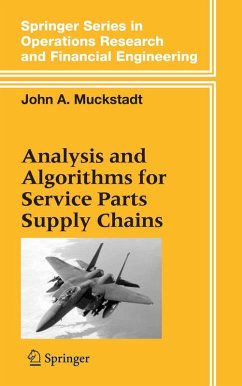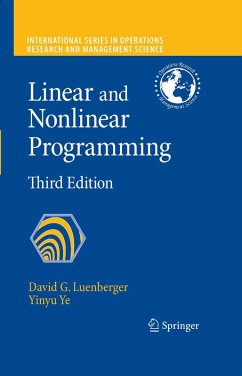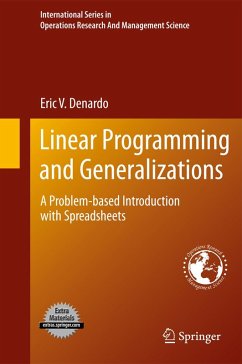
Decision Policies for Production Networks (eBook, PDF)
Versandkostenfrei!
Sofort per Download lieferbar
112,95 €
inkl. MwSt.
Weitere Ausgaben:

PAYBACK Punkte
56 °P sammeln!
The financial results of any manufacturing company can be dramatically impacted by the repetitive decisions required to control a complex production network be it a network of machines in a factory; a network of factories in a company; or a network of companies in a supply chain. Decision Policies for Production Networks presents recent convergent research on developing policies for operating production networks including details of practical control and decision techniques which can be applied to improve the effectiveness and economic efficiency of production networks worldwide. Researchers a...
The financial results of any manufacturing company can be dramatically impacted by the repetitive decisions required to control a complex production network be it a network of machines in a factory; a network of factories in a company; or a network of companies in a supply chain. Decision Policies for Production Networks presents recent convergent research on developing policies for operating production networks including details of practical control and decision techniques which can be applied to improve the effectiveness and economic efficiency of production networks worldwide. Researchers and practitioners come together to explore a wide variety of approaches to a range of topics including:
WIP and equipment management policies,
Material release policies,
Machine, factory, and supply chain network policies for delivery in the face of supply and demand variability, and
Conflicts between complex production network models and their controlling policies.
Case studies and relevant mathematical techniques are included to support and explain techniques such as heuristics, global and hierarchical optimization, control theory and filtering approaches related to complex systems or traffic flows. Decision Policies for Production Networks acts as handbook for researchers and practitioners alike, providing findings and information which can be applied to develop methods and advance further research across production networks.
WIP and equipment management policies,
Material release policies,
Machine, factory, and supply chain network policies for delivery in the face of supply and demand variability, and
Conflicts between complex production network models and their controlling policies.
Case studies and relevant mathematical techniques are included to support and explain techniques such as heuristics, global and hierarchical optimization, control theory and filtering approaches related to complex systems or traffic flows. Decision Policies for Production Networks acts as handbook for researchers and practitioners alike, providing findings and information which can be applied to develop methods and advance further research across production networks.
Dieser Download kann aus rechtlichen Gründen nur mit Rechnungsadresse in A, B, BG, CY, CZ, D, DK, EW, E, FIN, F, GR, HR, H, IRL, I, LT, L, LR, M, NL, PL, P, R, S, SLO, SK ausgeliefert werden.













